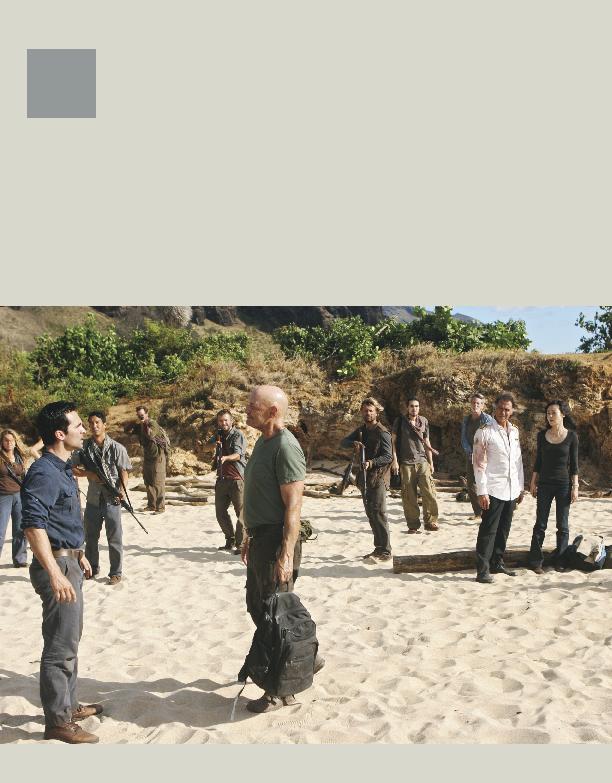
815, en route from Syd-
ney to Los Angeles, broke
up in the air and crashed
on an uncharted island
lously, a large number of the passengers on-
board survived relatively uninjured. Some, in
fact, came out of the crash better than they'd
been before.
amidst the palm trees, as did something
huge, dark and unknown. A strange radio
signal, almost two decades old, hinted of a
contagious madness. Ominous whispers in
the jungle warned that this island may not
be as deserted as it seemed. Over those first
few weeks, the passengers of Flight 815 --
and millions of viewers -- became obsessed
rytelling as LOST grew out of an act of petty
vengeance. An ABC executive who discov-
ered he was being fired decided to give his
employers the finger by greenlighting what
was, at that time, the most expensive televi-
sion pilot ever made -- with a budget of
more than $11 million. In the rush to get
the pilot written, cast, produced and edited,
the groundwork for well over a dozen mys-
teries was set up with only scant ideas of
how they would be developed. Creator
Damon Lindelof points at examples such as
the handwritten note James "Sawyer" Ford
(Josh Holloway) would always read or the
the jungle. These things were only briefly
discussed since the writers didn't want to
just have random, arbitrary elements, but
there wasn't time for much else. "Let's say
there were people on this island and they
were doing experiments on animal behav-
iorism and that's what brought the polar
bear here," Lindelof says. "And that's as far
as the conversation goes." Once the pilot got
solid reviews, however, he began getting the
same question from everyone. "`How are
you going to do this every week?' And my
answer to that question," he adds with a
laugh, "was, `I have no fucking idea.'"
ended up being a creative blessing in dis-
guise. After spending so much money on the
pilot, the network felt obligated to order a